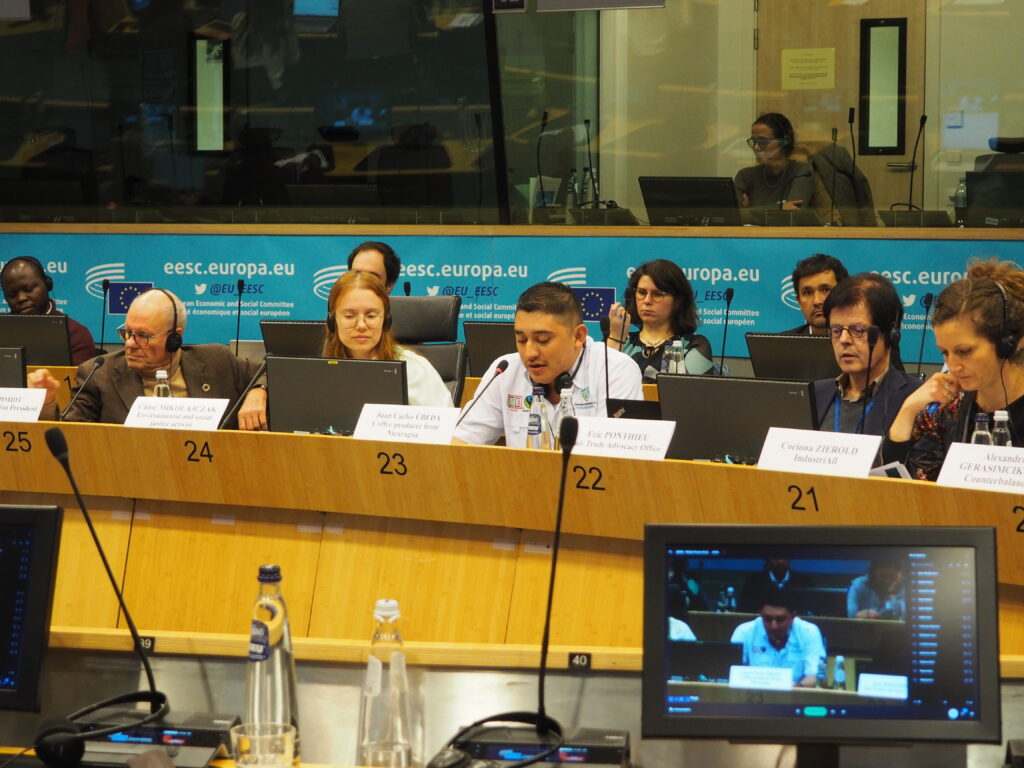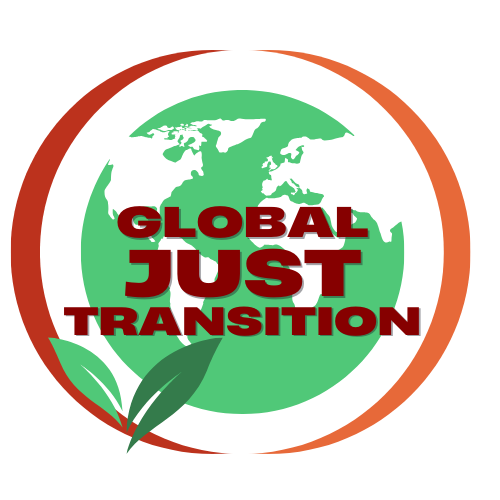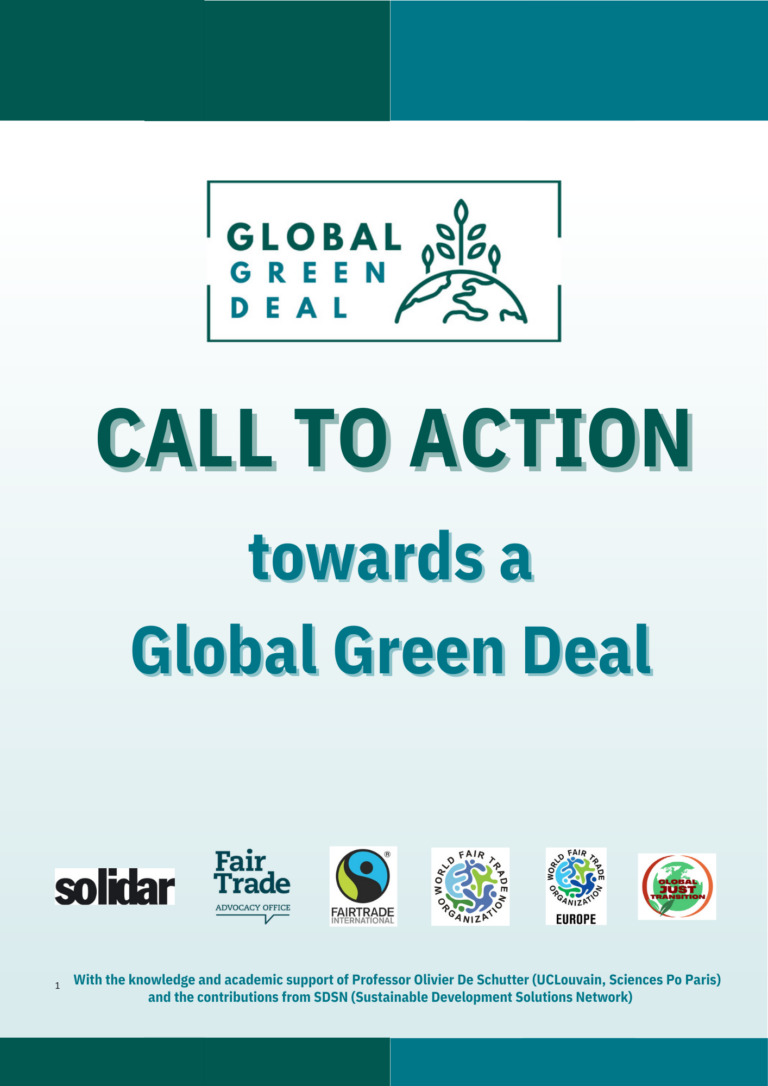Global Green Deal: How can the EU lead a Fair and Just Transition Worldwide?
Since the adoption of the European Green Deal (EGD) in 2019, a key question remains: How can the EU better involve partner countries in its ambitions towards a fair and just transition? This concern was at the centre of SOLIDAR’s event, organised together with the Fair Trade Advocacy Office, Fair trade International and the World Fair Trade Organisation, which took place on December 5 at the European Economic and Social Committee. The event gathered different stakeholders, from EU institutions to partner countries such as representatives from Colombia and Ecuador, aiming to discuss how the EU can address the global dimension of the European Green Deal in order to increase its efficiency, in the mutual interest of the EU and its partners. To answer the question, speakers and participants provided input on the EU’s development cooperation policy, the Global Gateway strategy and Trade policy.
Local small producers have no chance to implement Just Transition policies without adequate support
A common point of agreement among the participants was the need to better involve small producers, consumers and local organisations in the adoption of EU regulations. This would avoid some of the negative consequences currently experienced by small producers in partner countries, such as increased production costs or lack of support for policy implementation, as highlighted in the testimony of Juan Carlos Úbeda, coffee producer from Nicaragua. Example of these consequences is the EU Deforestation Regulation, whose implementation has been postponed due to concerns raised by international partners about the feasibility of meeting the original compliance timeline.

The European Green Deal must include an adequate impact assessment in partner countries, as this is the only way to ensure that its policies do not have negative spillover effects outside of EU borders. Despite the European Commission’s willingness to take better account of the impact of EU policies and programmes in partner countries, some concerns remain for example with regard to the Global Gateway strategy and the lack of impact assessment of its projects, as highlighted by Alexandra Gerasimcikova from Counter Balance1.
There is no Just Transition without workers’ rights
A final point of agreement was the need for workers to be at the heart of just transition policies and programmes. For instance, the textile sector employs over 90 million people, many of whom work in poor conditions or directly in the informal economy. It is also one of the sectors associated with unfair trading practices. The EU must step up its efforts to monitor and eliminate these harmful practices through its trade agreements. SOLIDAR, its members and partners together with sisters’ organisations will continue its advocacy work for a truly fair and just transition globally, supporting the EU’s efforts by raising the voice of workers and local organisations.
If you missed the event, you can watch the recording here.
1 Who profits from the Global Gateway? – Report by Counter Balance, Oxfam and Eurodad




